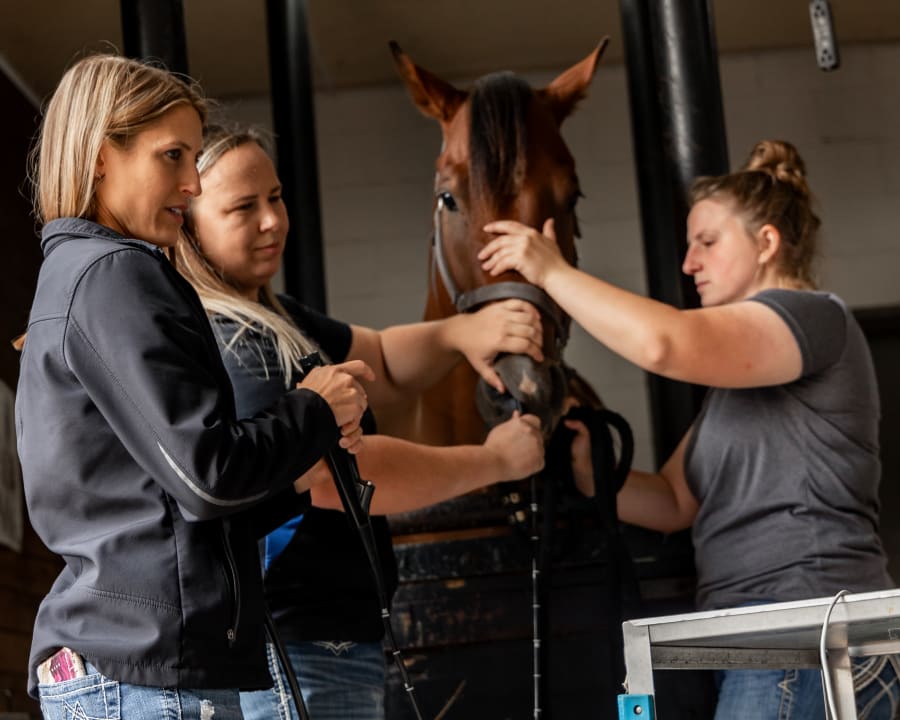Endoscopy Exams & Procedures
Veterinarians can use an endoscopy to examine and evaluate various parts of a horse's body. This includes the upper respiratory tract, as well as sections of the gastrointestinal, reproductive, and urinary tracts. Using endoscopies, veterinarians can make an accurate diagnosis and recommendation for treatment for a wide range of health conditions.
Our endoscopes capture detailed internal images of a horse's body and effectively identify abnormalities, surpassing other imaging methods, like X-rays. We can insert these devices either through natural openings in the horse's body or in surgical incisions.
Endoscopy procedures offer more than just imaging capabilities. They can also perform specialized procedures using instruments within the channels of the device.
These can include biopsy samples to gain a better understanding of your horse's condition. It can also expertly remove any foreign bodies, cysts, or small tumors to ensure the well-being of your horse.

Endoscopy Services At Stillwater Equine Veterinary Clinic
Our veterinary team can perform two different types of endoscopy procedures. We are fortunate to be able to perform these both in our clinic and on your farm.
Airway Endoscopy
We can perform airway endoscopies to examine the upper airway, larynx, and guttural pouches. Horses often undergo upper airway scoping to investigate issues like upper airway noise, such as "roarer," or to examine the guttural pouches for signs of chondroids in horses with strangles.
Gastroscopy
Gastroscopy is a thorough examination of the lining tissues of a horse's stomach using a flexible, 3.5 meter, video endoscope. We administer light sedation during the procedure, capturing pictures at specific intervals in the stomach. We then evaluate and categorize these images based on their type.
New Patients Welcome
Stillwater Equine Veterinary Clinic is accepting new patients! Whether you bring your horse to our Stillwater hospital or we are providing mobile care, trust that we have the tools and skills to meet your horse's every need.
Contact
Hours
-
Click to View
- Monday:08:00 am - 04:30 pm
- Tuesday:08:00 am - 04:30 pm
- Wednesday:08:00 am - 04:30 pm
- Thursday:08:00 am - 04:30 pm
- Friday:08:00 am - 04:30 pm
- Saturday:08:00 am - 12:00 pm
- Sunday:Closed
